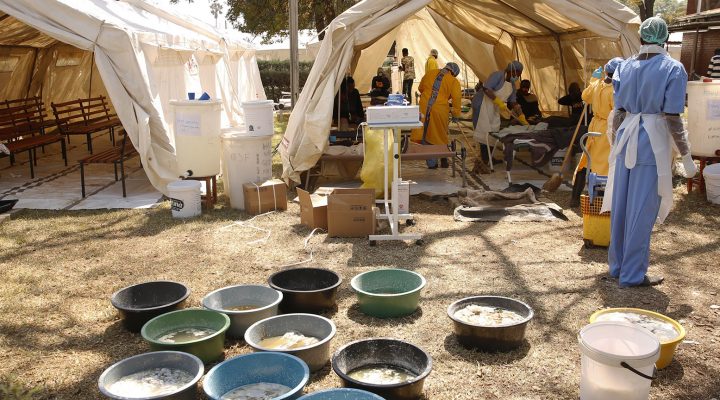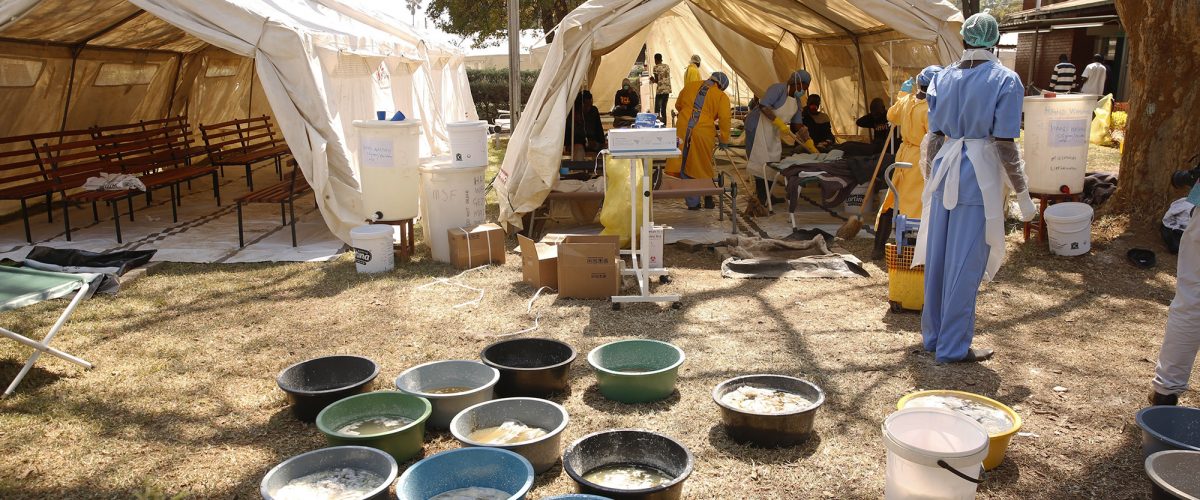Pastors in Zimbabwe fear a fast-spreading cholera outbreak could sink what remains of precarious church earnings as authorities mull worship restrictions and some congregants are staying away from services for fear of contagion.
“It never rains,” said Pastor Josia Jagidhi, a Pentecostal cleric in Harare, the capital of Zimbabwe.
Two years ago, Pastor Jagidhi lost 50% of his congregants for good when COVID restrictions led to bans on public gatherings. As BNG previously reported, in a story on church emigration from Zimbabwe, this year 40 of his middle-class tithe-paying congregants have emigrated to Britain and the United States in search of financially secure lives for their families.
Now, a new cholera outbreak portends new trouble.
“What’s left of my church and its finances will vanish if authorities ban services to stop the new cholera disease outbreak,” the pastor said. “God forbid if any of my flock gets sick or passes on from this disgusting yet preventable disease.”
“What’s left of my church and its finances will vanish if authorities ban services to stop the new cholera disease outbreak.”
The disease has spread due to a ruined economy, dilapidated sewer services and absence of piped water in Harare. It has claimed more than 100 lives and sickened thousands more, sparking a rerun of 2008 when a cholera epidemic killed 4,000 people.
According to Trymore Mawecha, an independent governance consultant, at the heart of a repeated cholera outbreak in Harare is years of political neglect of basic water infrastructure. Looting of water funds, emigration of specialist engineering skills and corrupt capture of water chemical contracts by politicians and cronies mean taps have been dry in the capital for a decade.
On those rare days when municipal water trickles out of taps, “what comes out is brown, smelly liquid littered with untreated effluent,” Mawecha said.
In late October, the Zimbabwean government banned gatherings in the capital and tightened monitoring procedures at airports and land borders.
Pastors are fearful if authorities expand the ban on mass gatherings and church services and funerals and weddings, cash donations and tithes pastors rely on to get by will vanish and many indigenous churches — unlike those of Western origin (Baptists, Anglicans, Catholics) — may close doors for good.
“This is no good news,” said Trevor Siyanda, a Baptist deacon in Harare. “We are 500 in our church congregations. Last Sunday, only 90 braved to come to church out of fear of mixing with crowds and getting the cholera infection. Even the priest was using white gloves to open Bible pages. Almost nothing of cash was given as tithes and Sunday donations.”
For some ordinary worshippers, the recurrent cholera disease uptick has encouraged them finally to exit Zimbabwe.
“I’m a 30-year-old father of two and devout Adventist,” explained Anold Hwata, an accountant and church elder in Harare city. “I finally have my visa to relocate to Ireland with family. I’m leaving forever because I don’t want my babies to grow up in a city where they can get very ill from drinking municipal water. But I’m also a volunteer church finances auditor and a generous donor to our pastor’s upkeep. It’s sad my gifts and talents will cease when I emigrate.”
As less-resourced churches in Zimbabwe grapple with what a ban on public gatherings means on their finances and memberships, pastors believe the big, rich Western churches in Zimbabwe will fare better than indigenous churches.
“Those ones have big trucks to bring clean emergency drinking and cleaning water for Sunday services, those ones have cash to drill electric boreholes on church premises, those ones got lavish monies from Europe and the U.S. and don’t worry about Sunday tithes, and their members can easily afford internet for online services,” Pastor Jagidhi lamented. Cholera is an unfair disease for poorer churches.”
For Reward Naiti, an infectious diseases expert in Zimbabwe, the ban on social gatherings to slow down cholera is critically important such that the need to mix physically and worship cannot be placed above bio-safety needs.
“But restricting church meetings can go only far,” he said. “The big question is: Why in 2023 does a capital city pipe smelly water to its resident’s home pipes?”


